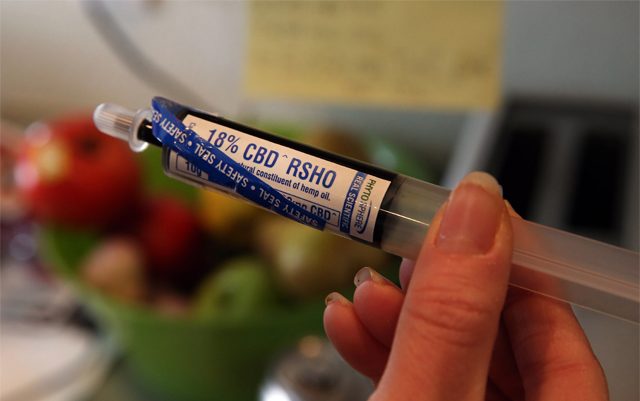The issue of the legality of CBD has been a confusing one across the United States in recent years. Some will say CBD is legal in “all 50 states” and you can find CBD on the shelves of stores just about anywhere. Others say it’s a gray area and much depends on exactly how the CBD was derived or extracted and what it was extracted from.
The issue has become very confusing as of late in the state of Ohio. The state’s medical marijuana program was supposed to kick off on September 8th (spoiler alert, it hasn’t). But one thing that date did trigger was a “clarification” regarding CBD from the Ohio Board of Pharmacy (OBP).
“HB 523 includes CBD oil in the definition of marijuana, regardless of whether it is a plant extract or synthetic product,” the board said.
“All marijuana products, including CBD oil, can only be dispensed in a licensed Medical Marijuana Control Program dispensary. Those marijuana products will have to comply with the rules and regulations of the program.”
This caused many stores in Ohio to start pulling CBD from their shelves. Other retailers have decided to continue to sell CBD products, and this has really added to the confusion surrounding the issue, so much so that it is generating a ton of news coverage across the state, including in Cincinnati, Ohio.
One of the people who have become a spokesman of sorts for the “defiant” retailers who continue to sell CBD in the Cincinnati area is E.R. Beach, owner of Hemptations, which has 4 locations in southwest Ohio. Beach’s stance on CBD has recently been covered by several news outlets in Cincinnati, both in print and on television.
In the interest of full disclosure: I co-host a weekly video show about hemp with Beach on Facebook. As you can imagine, the topic of CBD in Ohio has been a hot one that we discussed at length.
“[CBD is illegal] from their point of view,” Beach said on our first episode, referring to the Ohio Board of Pharmacy. He said that their view as policy makers is no different than the view the DEA takes of CBD and that these policies are based on the notion that CBD is derived from marijuana. But, as Beach points out, even the Pharmacy Board admits there is a distinction between CBD derived from marijuana and CBD derived from industrial hemp and that their policy specifically focuses on the former.
“They’re not lawmakers, they’re policy makers,” Beach said of the OBP. “So this isn’t law. This is the one thing I want to be clear on in the state of Ohio: CBD supplements have not been made illegal by the state of Ohio. Anything extracted from marijuana is still illegal,” Beach continued, but he pointed out that CBD extracted from industrial hemp is protected by the 2014 Farm Bill, the bill that made it legal for states to begin pilot programs growing industrial hemp.
“Legal CBD, the CBD products that we sell and have been selling for 7 years plus now,” Beach said, has always been an industrial hemp by-product, a by-product that used to be imported in the U.S. before 2014. If you’re selling CBD extracted from hemp grown under the auspices of the 2014 Farm Bill (with the approval of the state that it is grown in), “then that CBD product is 100% legal. Anything grown under those circumstances is 100% legal. They’re supplements.”
The hemp-derived CBD vs. marijuana-derived CBD argument is one that has been raging for a while now, with the hemp industry understandably pointing out that hemp-derived CBD is protected under the 2014 Farm Bill. “By wrongfully conflating the CSA’s narrow definition of ‘marihuana’ with the entire Cannabis plant, this definition of ‘marihuana extract’ wholly fails to reflect the lawfulness of industrial hemp and non-THC cannabinoids derived therefrom,” attorneys Patrick Goggin, Robert Hoban and Garrett Graff wrote in a brief filed last year on behalf of the Hemp Industries Association and others against the Drug Enforcement Administration.
So what happens now in Ohio? Beach says the OBP is welcome to test any of the products in his store to ascertain their THC content, and that they have done just that in the past. “There is literally two tales of CBD, and they’re only telling their (tale), because that’s their policy,” Beach told WLWT. “I truly know, I know, that we’re not breaking the law. The products that we sell are legal.”






